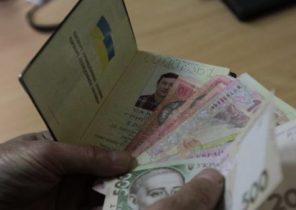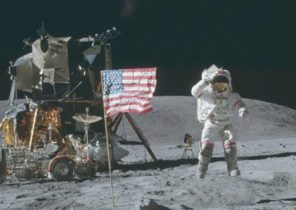War and slavery are felt throughout the long history of human societies. Their disappearance requires a very high level of civilization and morality, as well as recognition of the human person. Judge for yourself: according to the Walk Free Foundation, in 2016 in the world has 46 million slaves, half in Asia (China, India and Pakistan), almost all the rest — in Africa, mainly in the Sahel region. This concerns the societies of the Arabian Peninsula.
Not bypassed the party and Europe: the criminal group (Nigerian, Chinese and Balkan) migrants pay upon arrival (both legal and not) in sexual slavery on pain of death. In addition, running our cities carrying the food (sometimes it can be connected to the drugs) and girls with pornographic factories in California and Central Europe is also largely similar to slaves.
The concept of personality
In the early history of Christianity, St. Paul declared the equality of all people before God, free and slave, men and women, all races and cultures. Then, in Medieval Christianity, formed the concept of the individual. This idea was gradually put an end to slavery in Christian countries. Regent of the Frankish Kingdom bathilde banned slavery in the middle of VII century. However, the transition from slavery to serfdom has created a new form of dependence, which was abolished by the edict of Louis X July 3, 1315 years. Slavery still re-appeared in the XVII century on plantations in the colonies, away from the metropolis.
In the VII century, Islam was not declared the abolition of slavery, and the liberation of converting to Islam slaves. Anyway, a quick treatment of slaves was a threat to the economy of the Arabian Peninsula and conquered regions. This prompted the second Caliph Omar to mitigate the General principle. In that time, converted to Christianity in the former Roman Empire was moving away from slavery, formed the mechanisms of the “Arab” slave trade: the problem was sending in the Islamic Empire of slaves from the South, West and North.
Speaking schematically, soldiers and concubines came from the North (from the Mediterranean and the Caucasus), and servants (and sometimes soldiers) from Africa. This thousand-year slave trade began in 652, when 20 years after the death of Muhammad Ibn Abdullah Saeed demanded that the king of Nubia (modern Sudan) a tribute of 350 slaves per year. The Nile valley was for 13 centuries one of the main transit routes of slaves from Africa to the Mediterranean and the Eastern Islamic Empire.
Sea route across the Indian ocean, which kept traders and sailors from the South of the Arabian Peninsula was certainly the most active, however, constantly used and four roads through the Sahara. Apart from the Nile valley it was the road to Tripoli from lake Chad and Timbuktu, Algeria-Tunisia and Sijilmasa-Marrakech. The French closed the slave market in Marrakesh in 1912.
In total, three large areas of the slave trade stretched from Africa part of the life force throughout the millennia. The little-known (due to the very brief documentation) is the internal slave trade in the lands South of the Sahara. According to historians, she has covered 10 million people. The other two are documented in the commercial registers. The already mentioned TRANS-Saharan slave trade was directed to the Muslim North, and West to America. The Atlantic slave trade led to the deportation of 14 million people over 3 centuries, and the Arab — 17 million for 13 centuries. On average, the first covers 46 000 people a year for 300 years, and the second more than 13,000 people per year for 1 260 years.
The demonstrations that broke out in the Western cities and social networks after the death of George Floyd at the end of may 2020, talking about the history of Western domination of the slave trade in the views of activists and intellectuals in the United States and Western Europe. It resonates in Western and African universities, where many students and experts dedicate themselves to this painful episode of history.
This is due to the presence of 70 million people of African descent in the Americas and migration of multiple millions of blacks from the Caribbean to Western Europe since 1960-ies. In terms of post-colonial societies that paralyzed the post-Christian guilt, activists, and sympathizers put on a real trial: the slave labor had enriched the West, and now he is obliged to compensate the descendants of victims. Such a statement says about the ignorance of the fact that the active rise of the West is associated with its industrialization, which started later. In addition, their anger is only the Western slave trade.
Indeed, they would be very painful and even dangerous to think about the real mechanisms of the slave trade, African ownership and the Muslim world. This political and intellectual barrier is rooted in the pan-African movement of the early twentieth century, when a handful of blacks of blacks and colonized Africans managed to generate sympathy in Europe. In addition, it echoes a common struggle against French and British colonialism in the 1950-1960-ies, which brought together Africans from the North and South of the continent.
Some experts dared to take such a risky step: the Franco-Senegalese historian Tidiane Ndiaye released in 2008 the book “the Hidden genocide” forgotten TRANS-Saharan slave trade. It resembles an obvious fact: due to their magnitude, that the slave trade ought to lead to the formation of the black population in the Muslim empires. However, in the beginning of XXI century there were no more than a million blacks. From 20% to 30% of slaves died during the long crossing of the Sahara, and three of the four were killed during the selection of slaves (African Muslim Kingdom every year arranged an expensive and bloody expedition to capture slaves).
Finally, upon arrival of slaves in the Mediterranean, in the Arab capitals including India, they castrated them in special shops (this was associated with a significant mortality). The survivors had no children. The result was the genocide and the disappearance of an entire mass of people, whose descendants may not require a response.
Feelings of guilt are unable to take root in the Muslim world, where everybody believes that everything happened according to the will of God. The memory of the bloody slave trade vanished. The issue of slavery remains a painful only in Mauritania (it was abolished only in 1980) and Senegal: some require answer for their actions. Whatever it was, the division of the community of believers in Islam is considered a terrible sin, and aiming from the Persian Gulf imams without end reminded of this.
By the way, as defenders of the third world, which has long praised the great thinker of the XIV century Ibn Khaldun, “the inventor of sociology” refer to this to him: “the Negro countries as a rule submissive to slavery, because of their characteristics they are close to the most stupid animals”? And that West Africans who require the West compensation for its slave trade past, I can say about the responsibility of certain black peoples from the border of the Sahara and the Atlantic coast, which over the centuries have sold millions of prisoners to the Arabs in the North and to Europeans on the coast? “He who does not forget cannot live with others,” the saying goes in Burundi. Western carriers of the memory of slavery apparently did not understand this wisdom.







